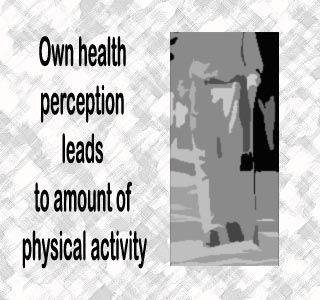A latest research by the University of Pittsburgh says that a patient’s take on their own health, apparently influences the amount they walk.

Study’s lead researcher, Jaime B. Talkowski, P.T., Ph.D., a Research Associate and the then Instructor at the University, says, “The purpose of this cross-sectional study was to investigate the simultaneous impact of psychological factors–health perception and balance perception–and physiological factors–gait speed, fall history and balance performance–on walking activity in older adults.â€
According to the researchers, this study is very crucial because it examines the link that the perception of one’s overall health and balance, has with the amount of activity older adults have. Talkowski points out the need for physical therapists, during examination, to apparently question older adults about their perception of their own overall health and balance, along with their health history. This will evidently in turn aid in better analysis of the situation and treatment.
The study is published in the scientific journal of the American Physical Therapy Association, Physical Therapy.
